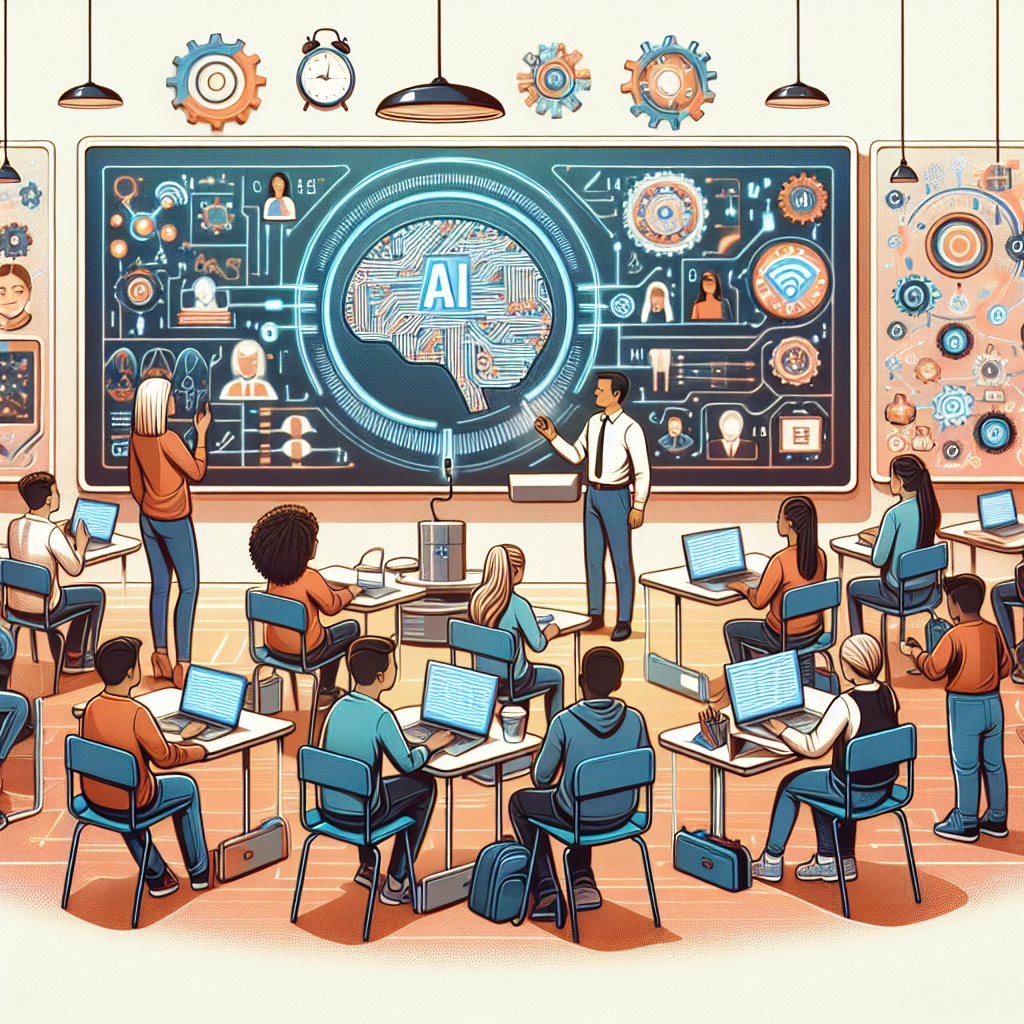Leveraging AI for Classroom Differentiation
In today’s rapidly advancing technological landscape, artificial intelligence (AI) is becoming increasingly integrated into various aspects of our daily lives. From virtual assistants to smart home devices, AI is revolutionizing the way we interact with technology. One area where AI is showing immense potential is in the field of education, particularly in the realm of classroom differentiation.
Classroom differentiation is the practice of tailoring instruction to meet the individual needs of each student. This approach recognizes that students have different learning styles, abilities, and interests, and aims to provide personalized learning experiences to maximize student learning outcomes. However, implementing differentiation in the classroom can be a daunting task for educators, as it requires a deep understanding of each student’s unique needs and the ability to create and deliver customized instructional materials.
This is where AI comes in. AI technologies have the capability to collect, analyze, and interpret large amounts of data in real-time, allowing educators to gain insights into student learning patterns and preferences. By leveraging AI tools, educators can more effectively differentiate instruction and provide personalized learning experiences for each student. In this article, we will explore the potential benefits of using AI for classroom differentiation and discuss some of the AI tools that can help educators in this endeavor.
Benefits of AI for Classroom Differentiation
1. Personalized Learning Experiences: AI technologies can analyze student data to identify individual learning styles, preferences, and strengths. With this information, educators can create personalized learning experiences that cater to each student’s unique needs, helping them to reach their full potential.
2. Real-time Feedback: AI tools can provide real-time feedback on student performance, allowing educators to quickly identify areas where students may be struggling and provide targeted interventions. This timely feedback can help students stay on track and make progress in their learning.
3. Adaptive Learning: AI-powered adaptive learning platforms can adjust the difficulty level of assignments and activities based on student performance. This ensures that each student is challenged at an appropriate level and can progress at their own pace.
4. Data-Driven Decision Making: AI tools can analyze student data to provide insights into student progress, engagement, and achievement. Educators can use this information to adjust instruction, make informed decisions about student support, and track student outcomes over time.
AI Tools for Classroom Differentiation
1. Adaptive Learning Platforms: Adaptive learning platforms use AI algorithms to analyze student performance and adjust the difficulty level of assignments and activities accordingly. These platforms provide personalized learning experiences for each student and can help educators differentiate instruction effectively.
2. Learning Analytics: Learning analytics tools use AI to analyze student data and provide insights into student progress, engagement, and achievement. Educators can use these insights to track student outcomes, identify areas for improvement, and make data-driven decisions about instruction.
3. Intelligent Tutoring Systems: Intelligent tutoring systems use AI to provide personalized tutoring and feedback to students. These systems can adapt to each student’s learning needs and provide targeted support in areas where students may be struggling.
4. Virtual Assistants: Virtual assistants can provide students with additional support and resources outside of the classroom. These AI-powered tools can answer student questions, provide feedback on assignments, and offer personalized recommendations for further learning.
Frequently Asked Questions (FAQs)
Q: How can AI help educators differentiate instruction in the classroom?
A: AI technologies can analyze student data to identify individual learning styles, preferences, and strengths, allowing educators to create personalized learning experiences for each student. AI tools can also provide real-time feedback on student performance, adapt assignments based on student progress, and help educators make data-driven decisions about instruction.
Q: Are there any potential drawbacks to using AI for classroom differentiation?
A: While AI technologies offer many benefits for classroom differentiation, there are some potential drawbacks to consider. These may include concerns about data privacy and security, the need for training and support for educators to effectively use AI tools, and the potential for AI to replace human interaction in the classroom.
Q: How can educators ensure that AI tools are used ethically in the classroom?
A: Educators should be mindful of ethical considerations when using AI tools in the classroom. This may include being transparent with students about how their data is being used, ensuring that AI tools are only used to support and enhance instruction rather than replace human interaction, and regularly evaluating the impact of AI on student learning outcomes.
Q: What are some best practices for integrating AI into classroom differentiation?
A: Some best practices for integrating AI into classroom differentiation include conducting thorough research on AI tools and platforms, providing training and support for educators to effectively use AI in the classroom, regularly monitoring and evaluating the impact of AI on student learning outcomes, and being mindful of ethical considerations when using AI tools.
In conclusion, AI technologies have the potential to revolutionize classroom differentiation by providing educators with valuable insights into student learning patterns and preferences. By leveraging AI tools, educators can create personalized learning experiences for each student, provide real-time feedback, adapt instruction based on student progress, and make data-driven decisions about student support. While there are some potential drawbacks and ethical considerations to consider, AI has the power to enhance student learning outcomes and support educators in creating inclusive and engaging learning environments.

